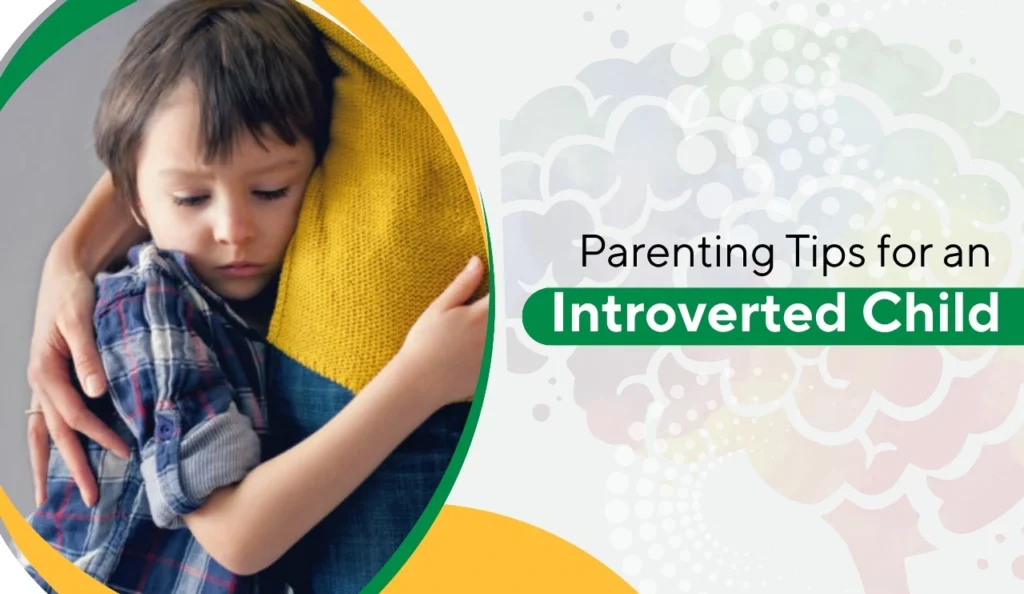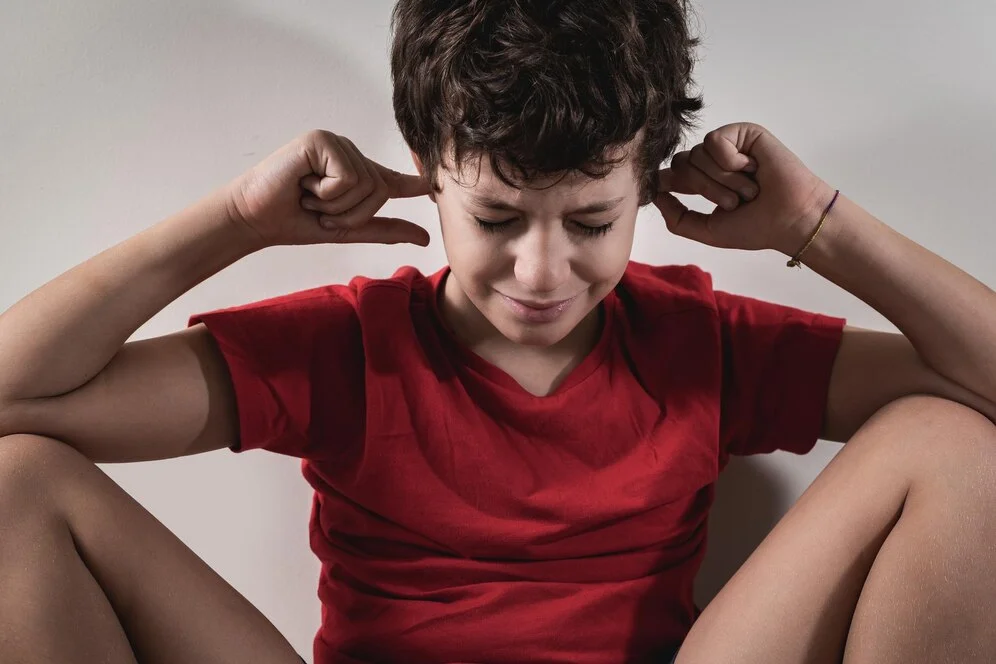-
129, Block-A Bangur Avenue, Mousumi Appartment, Kolkata 700055
129, Block-A Bangur Avenue, Mousumi Appartment, Kolkata 700055

Parenting Practices for shy and quiet kids can help them thrive emotionally. Learn expert tips guided by insights from a reputed counselor. Understanding the Nature of Quiet and Shy Kids Every child is different. While some jump headfirst into social situations, others prefer to observe from a distance. These quiet or shy behaviors are not flaws—they’re simply personality traits that require a different parenting approach. Recognizing this distinction is the first step in building a nurturing environment that fosters your child’s emotional wellbeing. Understanding the Nature of Quiet and Shy KidsWhy Parenting Styles Matter More for Shy KidsRecognizing the Emotional Needs of Shy ChildrenBest Parenting Practices That Truly Help1. Create Predictable Routines and Environments2. Validate Their Feelings—Don't Minimize Them3. Promote Gradual Exposure to Social Settings4. Model Calm and Confident Social Behavior5. Foster Autonomy Through Choices6. Build Communication Skills Through PlayUsing Thoughtful Parenting Practices to Nurture ConfidenceSigns You Might Want Professional GuidanceFAQs on Parenting Quiet and Shy ChildrenQ1: Is shyness a sign of a problem in children?Q2: How can I help my child make friends?Q3: Will my child always be shy?Q4: Should I force my child to speak in public?Q5: What’s the difference between introversion and social anxiety?The Role of Mindful Counseling in Parenting PracticesQuiet Kids, Loud Potential Quiet kids often have rich inner worlds. They're thinkers, observers, and sensitive to their surroundings. However, without the right parenting practices, they might struggle with self-confidence or social anxiety. That’s where mindful parenting plays a crucial role. Why Parenting Styles Matter More for Shy Kids Children who are naturally reserved may feel overwhelmed in environments that demand constant interaction. Traditional methods of encouraging children to “speak up” or “fit in” can backfire and cause more stress. Instead, gentle, supportive, and patient parenting helps children grow in ways that honor their temperament. A mental health professional would often recommend a parenting strategy that emphasizes understanding over fixing, and acceptance over change. Recognizing the Emotional Needs of Shy Children Before diving into effective parenting techniques, it’s vital to understand what quiet or shy children need the most: Emotional Safety: A secure environment where they can express without fear of judgment. Time to Warm Up: Space and time to get comfortable in new situations or with new people. Respect for Solitude: Understanding that alone time can be restorative for them. Encouragement Without Pressure: Gentle motivation to step out of their comfort zone, without force. Best Parenting...

Hello Reader! Welcome to the blog page of Dr. Rupa Talukdar, one of the best psychological counsellor in Kolkata. Parenting is a beautiful yet challenging journey, and it becomes even more nuanced when raising an introverted child. In a world that often praises outgoing personalities, introverted children may be misunderstood, pressured to change, or seen as "shy" or "too quiet." However, introversion is not a weakness—it is a personality trait that carries its own strengths. As the best psychological counsellor in Kolkata, I’ve guided many parents through understanding and supporting their introverted children in a healthy and empowering way. In this blog, I’ll share key insights and practical tips for parenting an introverted child with compassion, patience, and psychological wisdom. Understanding an Introverted Child1. Accept Your Child’s Personality Without Trying to Change It2. Create a Safe and Comfortable Environment3. Encourage Expression Without Forcing It4. Promote Social Interaction Through Comfortable Settings5. Support Their Interests and Creative Outlets6. Teach Them Coping Strategies for Overstimulation7. Model Respectful Social Behaviour8. Don’t Label Them as “Shy” or “Too Quiet”Q: How do I know if my child is introverted?Q: Should I push my introverted child to be more social?Q: Is being introverted a disadvantage for my child?Q: How can I support my introverted child emotionally?Q: When should I seek professional help for my introverted child? Understanding an Introverted Child An introverted child is not necessarily shy or anti-social. Instead, introversion refers to where they get their energy from. While extroverted children thrive on external stimulation and social interaction, introverted children feel recharged and most at peace in calm, familiar, and quiet environments. Common traits of an introverted child may include: Preferring solitude or quiet play Having a small circle of close friends Thinking deeply before speaking Being sensitive to loud noises or chaotic surroundings Enjoying creative, individual activities like reading or drawing Understanding these traits is the first step in becoming an effective and supportive parent to an introverted child. Key Parenting Tips for an Introverted Child 1. Accept Your Child’s Personality Without Trying to Change It As the best psychological counsellor in Kolkata, I often meet parents who worry that their child’s quiet nature might hinder them. It’s important to understand that introversion is not a problem that needs fixing. Celebrate your child’s uniqueness. Let them know they are loved for who they are, not who society wants them to be. 2. Create a Safe...

Emotional Intelligence shapes healthier families. Learn its value with insights from a reputed counselor. In a world where stress, digital distractions, and constant demands are the norm, families are often the first to feel the strain. Relationships that should feel nurturing and safe can sometimes become emotionally distant or reactive. One of the most powerful tools to restore connection, foster understanding, and build lasting trust within families is Emotional Intelligence. What Is Emotional Intelligence?Why Emotional Intelligence Is Crucial in Families1. Healthier Communication2. Reduced Conflicts3. Stronger Parent-Child Relationships4. Better Mental HealthBuilding Emotional Intelligence at HomeEncourage Self-AwarenessPractice Empathy RegularlyCreate Routines for ConnectionModel Calm Emotional ResponsesChallenges in Developing Emotional IntelligenceWhen to Seek Help from a ProfessionalHow Emotional Intelligence Supports ChildrenSupporting Emotional Intelligence Through Life StagesYoung Children (Ages 2–7)Pre-Teens and TeenagersAdults and Elderly Family MembersFAQsQ1: Can Emotional Intelligence be taught later in life?Q2: What’s the difference between empathy and sympathy?Q3: Are emotionally intelligent families always peaceful?Q4: How long does it take to develop Emotional Intelligence?Q5: Is Emotional Intelligence the same as being emotional?Building Stronger Family Connections with Emotional Intelligence The term may sound clinical, but its impact is deeply personal. Emotional Intelligence isn’t just about being sensitive — it's about navigating emotions effectively, both your own and those of others. And when practiced consistently at home, it can transform the entire family dynamic. What Is Emotional Intelligence? Emotional Intelligence, often abbreviated as EI or EQ, refers to the ability to: Recognize your own emotions Understand the emotions of others Manage emotional reactions Communicate effectively and empathetically Navigate social complexities calmly Psychologists identify five core components of Emotional Intelligence: Self-awareness Self-regulation Motivation Empathy Social skills These aren't just individual traits—they are essential tools for family life. Why Emotional Intelligence Is Crucial in Families When families develop Emotional Intelligence together, they create a culture of: Understanding instead of judgment Support instead of control Connection instead of isolation Here’s how it plays out: 1. Healthier Communication Misunderstandings often arise from poor emotional expression. When family members develop emotional vocabulary and learn to communicate openly, the entire household becomes more emotionally secure. 2. Reduced Conflicts With stronger emotional regulation, arguments shift from blame and yelling to problem-solving and listening. Children learn from adults, and the emotional tone of the home becomes calmer. 3. Stronger Parent-Child Relationships Children are especially impressionable. When parents model empathy and awareness, children not only feel seen and heard but also learn to mirror...

Emotional Struggles in Young Kids can be subtle yet impactful. Learn how to recognize early signs and support your child's emotional well-being with expert insights. Today’s children live in a world that’s both exciting and overwhelming. Between rapid technological changes, busy family schedules, and rising academic pressure, it’s no surprise that even very young kids can experience emotional turbulence. But while emotional health is just as important as physical health, it’s often harder to spot when something’s wrong—especially in children who haven’t yet learned how to express their inner world. Counselling and psychotherapy can play a vital role in helping children navigate these challenges, offering them the tools to better understand and manage their emotions. Why Early Emotional Awareness MattersWhat Are Emotional Struggles in Young Kids?Early Signs to Watch ForBehavioral ChangesPhysical CluesEmotional WithdrawalAcademic & Social ShiftsPossible Causes of Emotional Struggles in Young KidsMajor Life TransitionsEnvironmental StressorsDevelopmental and Learning IssuesHow to Respond When You Notice the Signs1. Be Present and Observant2. Create a Safe Emotional Environment3. Support Through Routine4. Promote Emotional Literacy5. Model Healthy Emotional ResponsesWhen to Consider Professional HelpBuilding an Emotionally Supportive HomeSmall Steps That Make a Big DifferenceFAQs – Emotional Struggles in Young KidsQ1: At what age can emotional struggles begin in children?Q2: How do I talk to my child about their feelings without making it worse?Q3: Should I be worried if my child has one or two signs occasionally?Q4: Can screen time affect emotional health?Be the Anchor They Need Understanding the emotional struggles in young kids requires observation, patience, and compassion. This guide is created to help parents, teachers, and caregivers recognize early warning signs and build a healthy support system for children facing emotional difficulties. Why Early Emotional Awareness Matters Before we dive into the signs, it’s essential to understand why catching these early matters. Emotional difficulties in children, when unrecognized, can lead to: Academic struggles Social isolation Behavior issues Long-term mental health conditions such as anxiety or depression Early recognition and intervention give children the tools to process emotions, build resilience, and develop trust in the adults around them. What Are Emotional Struggles in Young Kids? Emotional struggles in young kids refer to persistent feelings or behaviors that impact their well-being and ability to engage positively with daily life. These struggles often present differently than in adults. Rather than saying "I'm sad" or "I'm anxious," young children might act out, withdraw, or experience unexplained physical symptoms....

Emotional triggers can affect mental well-being. Learn how to recognize, understand, and heal emotional triggers with insights from a reputed counselor. What Are Emotional Triggers?Why Understanding Emotional Triggers MattersCommon Emotional Triggers and Their Root Causes1. Rejection2. Criticism3. Failure4. Injustice5. ControlHow Emotional Triggers Affect the Brain and BodySteps to Identify Your Emotional Triggers1. Track Your Reactions2. Ask “Why” Repeatedly3. Notice Your Body4. Reflect on the PastHealing Emotional Triggers: Where Growth Begins1. Practice Mindfulness2. Reframe the Narrative3. Inner Child Work4. Build Emotional Regulation Skills5. Seek Professional GuidanceWhy Counseling Is a Safe Space for Emotional HealingHealing Emotional Triggers with Expert SupportReal-Life Benefits of Healing Emotional TriggersFAQs on Emotional TriggersQ1. Are emotional triggers a sign of weakness?Q2. Can I heal emotional triggers on my own?Q3. How long does it take to heal emotional triggers?Q4. What if I don’t know what triggers me?Q5. Do all emotional triggers come from childhood?The Power of Self-Awareness and Support What Are Emotional Triggers? Have you ever reacted strongly to a seemingly small event and later wondered, “Why did that affect me so much?” That moment is often the result of an emotional trigger. Emotional triggers are intense emotional reactions—often fear, anger, sadness, or shame—that arise due to past experiences, unresolved trauma, or unmet needs. They're not inherently bad, but if not understood or healed, they can limit personal growth, disrupt relationships, and impact mental health. Why Understanding Emotional Triggers Matters Recognizing emotional triggers is a vital step in emotional intelligence. When you become aware of what triggers you and why, you can: Respond rather than react Strengthen personal and professional relationships Improve your mental resilience Heal past emotional wounds Set healthier boundaries Healing emotional triggers isn’t about avoiding them. It’s about facing them with awareness and compassion. Common Emotional Triggers and Their Root Causes Understanding the types of triggers can help in self-awareness and healing. 1. Rejection Triggered by: Feeling ignored, excluded, or undervalued Root Cause: Childhood neglect, social trauma, or abandonment 2. Criticism Triggered by: Negative feedback, even when constructive Root Cause: Low self-esteem or hypercritical parenting 3. Failure Triggered by: Mistakes or underperformance Root Cause: Perfectionism, shame, or high parental expectations 4. Injustice Triggered by: Unfair treatment, even toward others Root Cause: Experiences of bias, discrimination, or favoritism 5. Control Triggered by: Feeling micromanaged or manipulated Root Cause: Past experiences of powerlessness or betrayal How Emotional Triggers Affect the Brain and Body When triggered, the brain’s amygdala...

Children's Mental Health can be significantly impacted by divorce. Learn how to support your child through this transition with insights from a reputed counselor. Divorce is a life-altering event that affects not just the couple involved but also their children. The emotional turmoil and changes in family dynamics can have profound effects on children's mental health. Understanding these impacts is crucial for parents to provide the necessary support during such transitions. Understanding the Impact of Divorce on Children's Mental HealthEmotional ResponsesBehavioral ChangesLong-Term Psychological EffectsSupporting Your Child Through DivorceOpen CommunicationMaintain RoutinesCo-Parenting StrategiesProfessional SupportFAQsQ: How can I tell if my child is struggling with the divorce?Q: Should we inform the child's school about the divorce?Q: Is it normal for children to blame themselves for the divorce?Q: How long does it take for a child to adjust after a divorce?Q: When should I seek professional help for my child?Empowering Children Emotionally After a Divorce Understanding the Impact of Divorce on Children's Mental Health Emotional Responses Children may experience a range of emotions during and after their parents' divorce, including: Sadness and Grief: Mourning the loss of the family unit. Anger: Directed towards one or both parents. Anxiety: Worrying about the future and changes in their lives. Confusion: Struggling to understand the reasons behind the divorce. These emotional responses can vary based on the child's age, personality, and the circumstances surrounding the divorce. Behavioral Changes Divorce can lead to noticeable changes in a child's behavior, such as: Academic Decline: Difficulty concentrating or a drop in grades. Social Withdrawal: Avoiding friends and social activities. Aggression: Acting out or displaying anger in inappropriate ways. Regressive Behaviors: Returning to earlier developmental stages, like bedwetting. These behaviors are often coping mechanisms for the stress and confusion they feel. Long-Term Psychological Effects If not addressed, the emotional and behavioral impacts of divorce can lead to long-term psychological issues, including: Depression and Anxiety: Persistent feelings of sadness and worry. Trust Issues: Difficulty forming and maintaining relationships. Low Self-Esteem: Feeling unworthy or blaming themselves for the divorce. Early intervention and support are key to mitigating these long-term effects. Supporting Your Child Through Divorce Open Communication Encourage your child to express their feelings and listen without judgment. Reassure them that their emotions are valid and that it's okay to feel upset or confused. Maintain Routines Keeping daily routines consistent provides a sense of stability and security. Regular meal times, bedtimes, and school...